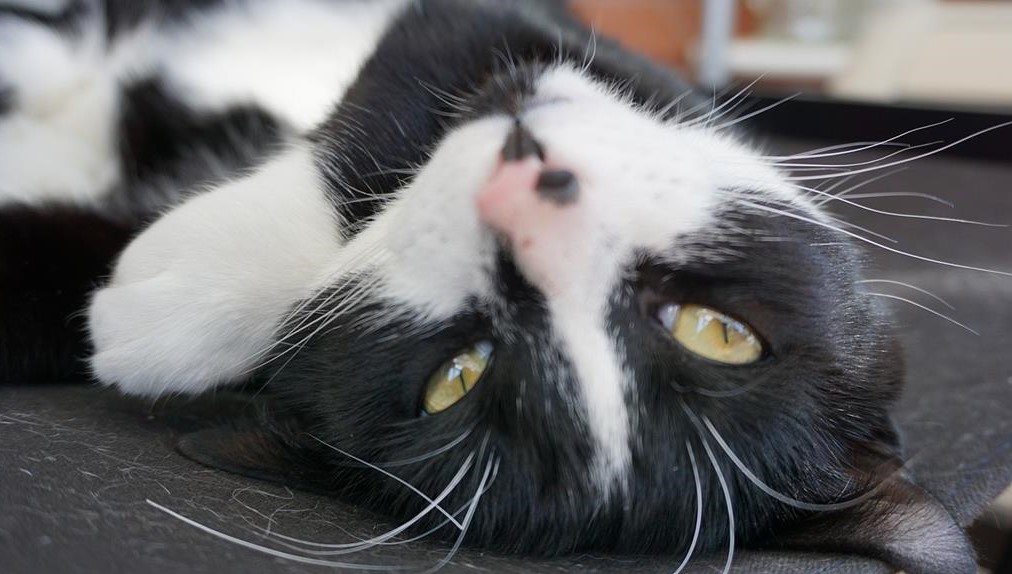Cats are known for their mysterious and sometimes quirky behaviors, but when it comes to sneezing, it’s not just a funny or cute occurrence – it can also be a sign that something might be amiss. While the occasional sneeze might not be cause for concern, persistent or frequent sneezing could indicate underlying issues that warrant attention.
Normal Sneezing vs. Concerning Sneezing
Just like humans, cats sneeze to expel irritants from their nasal passages. These irritants can range from dust and pollen to foreign objects or even strong odors. Occasional sneezing is generally considered normal and not a cause for concern. It’s similar to how we might sneeze when exposed to something irritating.
However, if you notice that your cat is sneezing excessively or the sneezing is accompanied by other symptoms, it’s time to pay closer attention and consider potential reasons for their discomfort.
Common Causes of Sneezing in Cats
1. Allergies:
Cats can experience allergies to various environmental factors, including pollen, dust, mold, and certain cleaning products. Sneezing, along with other signs like watery eyes and itching, can indicate an allergic reaction.
2. Upper Respiratory Infections:
Cats are susceptible to respiratory infections, especially in multi-cat households or crowded environments. Viruses like feline herpesvirus and feline calicivirus are common culprits, causing symptoms such as sneezing, runny nose, and congestion.
3. Foreign Objects:
Cats are curious creatures and might sniff or explore things that end up in their nasal passages. Sneezing can be a way for their body to try to dislodge the foreign object.
4. Dental Issues:
Dental problems, like infections or abscesses, can sometimes lead to sneezing if the infection spreads to the nasal passages.
5. Irritants:
Strong scents, smoke, or even dust from litter can irritate a cat’s sensitive nasal passages, triggering sneezing.
6. Nasal Polyps:
These benign growths can develop in a cat’s nasal passages, leading to sneezing, congestion, and difficulty breathing.

When to Seek Veterinary Care
While an occasional sneeze might not be cause for concern, there are certain signs that indicate you should consult a veterinarian:
- Persistent Sneezing: If your cat is sneezing frequently over the course of a day or multiple days, it’s best to get them checked out.
- Discharge: If your cat has nasal discharge that is colored (green, yellow, or brown), this could indicate an infection.
- Loss of Appetite: If your cat is not eating well, it could be a sign of an underlying issue, especially if combined with sneezing.
- Lethargy: If your usually active cat becomes lethargic or seems uninterested in play, it might be time for a vet visit.
- Labored Breathing: If your cat is struggling to breathe or making wheezing sounds, seek immediate veterinary care.
What to Expect at the Vet
During a veterinary visit, your cat’s overall health will be assessed. The vet will likely inquire about the frequency and duration of the sneezing, any accompanying symptoms, and your cat’s living environment. They may perform a physical examination, including checking your cat’s mouth, nose, and throat.
Depending on their findings, the vet might recommend further tests such as blood work, X-rays, or swabs to identify the cause of the sneezing. Treatment will vary based on the underlying issue – it could range from managing allergies to administering antibiotics for infections.
FAQ:
1. Why is my cat sneezing?
Sneezing in cats is a natural way for them to expel irritants from their nasal passages. It can be caused by various factors, including allergies, respiratory infections, foreign objects, dental issues, irritants, and nasal polyps.
2. Are occasional sneezes normal for cats?
Yes, occasional sneezing is generally normal for cats. Just like humans, they can sneeze when exposed to dust, pollen, or other irritants. It becomes a concern when sneezing is frequent, persistent, or accompanied by other symptoms.
3. What are the concerning signs associated with cat sneezing?
Concerning signs include persistent sneezing over several days, colored nasal discharge (green, yellow, or brown), loss of appetite, lethargy, labored breathing, and noticeable changes in your cat’s behavior.
4. Can allergies cause my cat to sneeze?
Yes, allergies can lead to sneezing in cats. Environmental allergens like pollen, dust, and mold can trigger sneezing, as well as other symptoms like watery eyes and itching.
5. When should I take my sneezing cat to the vet?
You should take your cat to the vet if the sneezing is frequent, persistent, or accompanied by concerning symptoms. These symptoms might include colored nasal discharge, loss of appetite, lethargy, labored breathing, and changes in behavior.
6. What can I expect during a vet visit for my sneezing cat?
During a vet visit, the veterinarian will assess your cat’s overall health, ask about the frequency and duration of the sneezing, and inquire about any accompanying symptoms. They might perform a physical examination, including checking your cat’s mouth, nose, and throat. Based on their findings, they may recommend further tests such as blood work, X-rays, or swabs to identify the cause of the sneezing and provide appropriate treatment.
In Conclusion
Sneezing in cats can be a normal reaction to irritants, but it’s essential to differentiate between normal sneezing and signs of an underlying problem. If you’re concerned about your cat’s sneezing, especially if it’s persistent, accompanied by other symptoms, or if you notice any changes in their behavior or overall health, don’t hesitate to consult a veterinarian. Catching and addressing potential issues early can help ensure your feline friend’s well-being and comfort.
Related Post:
Why Your Ragdoll Cat Meows So Much at Night



